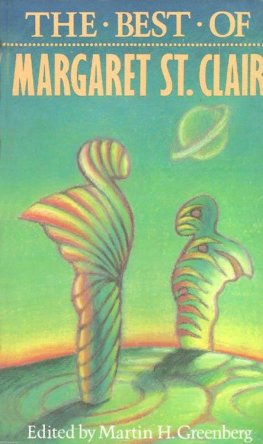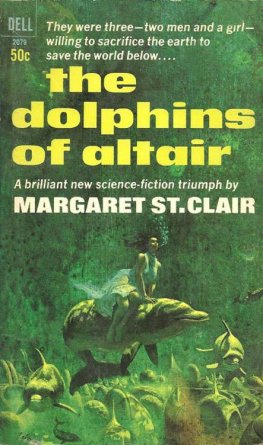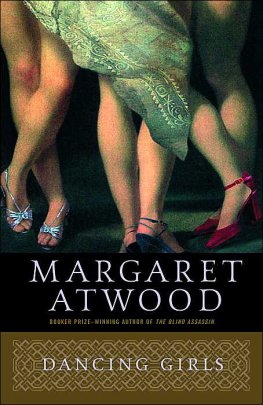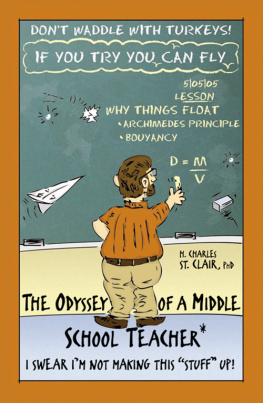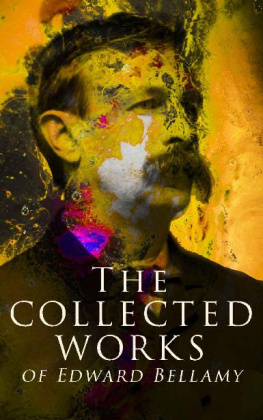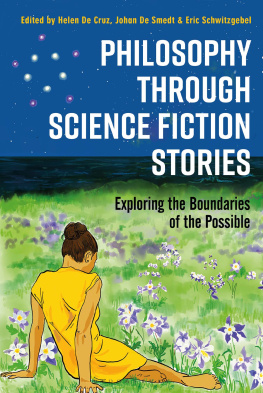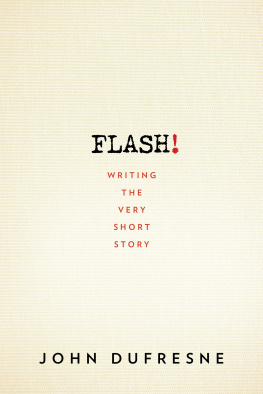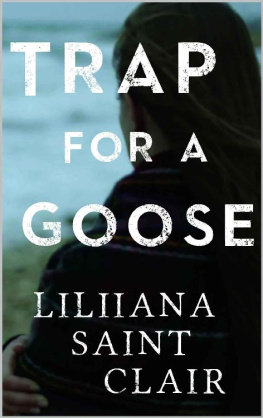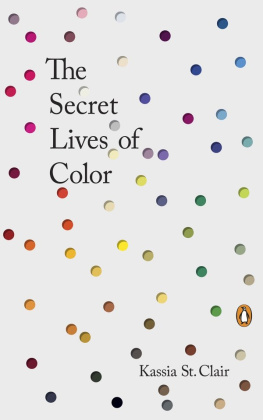THE BEST OF MARGARET ST. CLAIR
Edited by Martin H. Greenberg
Introduction
THOUGHTS FROM MY SEVENTIES
Most of the sense impressions of my childhood were pleasant. The fruitwiney, crisp Jonathan apples, luscious slip-skin purple concord grapes, tomatoes hot from the sun and full of ripe red juicewas the soul food of my childhood. I remember the taste of Mallard duckstoo pretty to kill, with their lovely plumage, but luscious eatingdomestic chicken, and wild squirrel. I loved a kind of butterscotch sucker, embossed, improbably, with a duck, and a cool, vanilla-tasting, cream club soda.
Things had more flavor then, and there is more than the usual blunting of the senses with age involved in my thinking this. The sophisticated food-handling techniques of the present had not yet been devised. The Sunday fried chicken had, only a few hours earlier, been pecking melon rind in its pen. The food of my childhood tasted better because nobody knew how to make it stay ediblefree from gross spoilagefor six months.
The flowers had wonderful smells. Sweet peas were intoxicatingly sweet, so that the room seemed to rock and reel with their perfume. Peoniesred, pink, and whitesmelled of softer, cooler roses. The heavy, intoxicating trusses of purple lilacs lasted poorly when cut, but oh, how choice they were among the flowers in a May basket! I loved lily of the valley, citrus-smelling silver bells, Keats valley lilies. There were plenty of good things to taste and smell when I was a child.
Emotional pleasures were another thing. Human warmth was not in good supply. But my two uncles, Uncle Ross and Uncle John, were darlings. I wasnt an articulate child, and I hadnt been taught good manners. I dont know whether they ever knew how much I appreciated all their kindnesses to me. I shall always remember them with gratitude and affection. Two dear, land, men, loving and, I fear, rather unhappywherever they are now, I wish them happy, and I wish them well.
The road from loving uncles in Kansas to science fiction writing in California is a tortuous one and one that I dont want to try to retrace. John Clute, who did a critical study of my work in Science Fiction Writers, characterized me as elusive, and it may be so. Certainly I dislike writing about myself. The reason for this, I think, is that I am often uncomfortably aware of my not having the right attitude. (Do youngsters nowadays get chewed out for not having the right attitude? I imagine they still do.) I am conscious of having, no matter what group Im in and no matter how stoutly I embrace their principles, some mental reservations. For example, Ive been interested in the work of the American Friends Service Committee since 1945. Yet I do wonder whether the death penalty is always wrong. Im a longtime civil libertarian, but sometimes the ACLU does things that I wonder about. And so on. In short, Im never really a true believer, although I do believe. My political sympathies, as Mr. Clute observed, are with the democratic left.
Where science fiction is concerned, I am often puzzled by the intensity of feeling people bring to it. Is it a sacred cause? Have science fiction writers become the seers, the prophets, the moral teachers, of our age? Can they give us guidance on levels unknown to the writers of detective or gothic fiction? I dont find the qualifications for these elevated roles among my colleagues or in myself.
The genre of science fiction writing has much to recommend it to a writer. The freedom that prevails in it is unique, it commands more public respect than other forms of popular fiction, and it is possible to sell it fairly frequently. And the heady action and excitement that are typical of it make it great fun to write.
It has disadvantages, too. It never pays very well, the science in it has a short shelf life, and attempts at humor and characterization in it are apt to make a piece less saleable and cost the writer dear. Its predictive and prophetic value, in which public respect for science fiction seems to be rooted, have not proved very great. And yet I wrote a lot of it.
I wrote a lot of it, and I certainly wasnt well paid. I enjoyed it; I didnt get much approbation. I have been far more successful as a writer abroad than in this country, but this came late. What was I up to? What were my colleagues up to? If science fiction doesnt predict, and really cant act as moral authority, is it nothing but entertainment? What, in short, is science fiction all about?
The Marxists of the thirties used to talk of the historical task of capitalism. (It was to develop the productive capacities of mankind, in case youre interested.) Has science fiction had a historic task to perform, albeit an unconscious one? Is an intuition of this why people are interested in it?
Forgive me for all the rhetorical questions. I think I can answer them, at least to my own satisfaction. The historic task of science fiction is to develop a global consciousness.
This is the task of our age; to rise above our petty jealousies and hatreds, to learn to use our admirable local loves and loyalties as the binding cement in a larger loyalty. We must learn to think of ourselves as the inhabitants and citizens of the third planet from the sun.
Who, having seen the pictures of our earth from space, could forget them? That cloudy opal, incomparably beautiful, incomparably precious, dear beyond any other dearnessearth, whose fate now lies in our merely human hands.
I have just disavowed pretensions to being a prophet or a seer, and now I am talking like one. Yet there is a difference. It is one thing to point out goals for humanitytomorrow the stars and another to contribute to the realization of a fact: that we live on a fragile, destructible planet. We have only one earth.
They say the aging eye is far-sighted. I am now in my early seventies. The thing I see most clearly is that this age confronts us with the task of learning to think of ourselves as a global people. When our deepest loyalties will have been given to our planet, we will have begun to be safe on earth.
* * *
Those who have lived through the Holocaust, Hiroshima, Coventry, Dresden, may be excused for forgetting that love, kindness, compassion, nobility, exist. Yet in mans animal nature lie not only the roots of his cruelty, viciousness, sadism, but also of his perfectly real goodness and nobility. The potential is always there. It is the task of our age to make it actual.
It may be that science fiction writers, without ever being conscious of it, have been moved as a group to blow on the spark of a new awareness in human beings: that we live on a sacred planet.
If anything I have ever written will have contributed to that goal, I am well content. Other ages will have other tasks. Our task today is to realize that we live on, and are citizens and lovers of, the third planet from the sun, the ultimately sacred earth.
Margaret St. Clair September, 1985Do you have to talk so much, gesell? Bill begged hollowly from his bunk. His face, which had turned pale at the Cyniscus take-off two days before, was by now the pale curded green of a piece of bosula cheese, and his eyes were sunk. It sounds as if you were trying to keep yourself from thinking about Darleen. I dont want to be ungrateful, but all that talk makes me feel worse.
George shook his head. Before you can get over your attack of kenoalgia, he said remorselessly, youll have to realize whats causing it. Theres nothing wrong with you physically, but being in open space for the first time in your life is giving your ego the worst beating its ever had. The first spacemen, who werent trained psychologists, couldnt believe that so much nausea and prostration could have mental causes. They attributed it to a marasmic action of cosmic rays on nervous tissue, and the first two expeditions to land on Luna mutinied rather than go through space scurvy getting home again. He cleared his throat.

